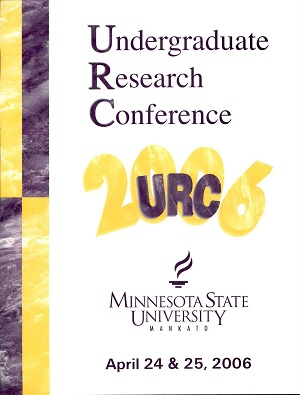Sarbanes-Oxley, Investigating the Perceived Knowledge and Effectiveness of Financial Statement Fraud Penalties
Location
CSU 253
Start Date
24-4-2006 8:45 AM
End Date
24-4-2006 10:15 AM
Student's Major
Accounting and Business Law
Student's College
Business
Mentor's Name
Tom Olach
Mentor's Department
Accounting and Business Law
Mentor's College
Business
Description
The recent boom in financial statement frauds has led market participants to lose confidence in the accounting regulatory system. This dilemma gave rise to the Sarbanes-Oxiey (SOX) Act signed on July 30, 2002. SOX revised penalties regarding financial statement fraud, making regulations stricter. Currently, little research exists that provides individuals with information pertaining to the public's knowledge of the SOX penalties and the penalties' effectiveness in mitigating fraudulent financial reporting. Companies are experiencing significant costs associated with SOX compliance, so analysis is worthwhile in order to assess the effectiveness of the current SOX penalties. This research will help determine if the benefits of SOX penalties are worth the additional costs companies are currently experiencing. Three groups of individuals will be surveyed: (1) accounting students, (2) College of Business faculty, and (3) accounting professionals, to determine the public's knowledge and opinion relating to the effectiveness of these penalties. This research has public policy implications because the results will help inform accounting/auditing regulators of three things: (1) Is the public aware of the current SOX penalties? (2) Do the benefits of the penalties exceed the additional costs? (3) Does the public feel that the new SOX penalties will alleviate fraudulent financial reporting? Results from this study will illustrate the public's awareness of SOX and the perceived effectiveness of SOX financial statement fraud penalties.
Sarbanes-Oxley, Investigating the Perceived Knowledge and Effectiveness of Financial Statement Fraud Penalties
CSU 253
The recent boom in financial statement frauds has led market participants to lose confidence in the accounting regulatory system. This dilemma gave rise to the Sarbanes-Oxiey (SOX) Act signed on July 30, 2002. SOX revised penalties regarding financial statement fraud, making regulations stricter. Currently, little research exists that provides individuals with information pertaining to the public's knowledge of the SOX penalties and the penalties' effectiveness in mitigating fraudulent financial reporting. Companies are experiencing significant costs associated with SOX compliance, so analysis is worthwhile in order to assess the effectiveness of the current SOX penalties. This research will help determine if the benefits of SOX penalties are worth the additional costs companies are currently experiencing. Three groups of individuals will be surveyed: (1) accounting students, (2) College of Business faculty, and (3) accounting professionals, to determine the public's knowledge and opinion relating to the effectiveness of these penalties. This research has public policy implications because the results will help inform accounting/auditing regulators of three things: (1) Is the public aware of the current SOX penalties? (2) Do the benefits of the penalties exceed the additional costs? (3) Does the public feel that the new SOX penalties will alleviate fraudulent financial reporting? Results from this study will illustrate the public's awareness of SOX and the perceived effectiveness of SOX financial statement fraud penalties.
Recommended Citation
Overaas, Kirk. "Sarbanes-Oxley, Investigating the Perceived Knowledge and Effectiveness of Financial Statement Fraud Penalties." Undergraduate Research Symposium, Mankato, MN, April 24, 2006.
https://cornerstone.lib.mnsu.edu/urs/2006/oral-session-B/3




